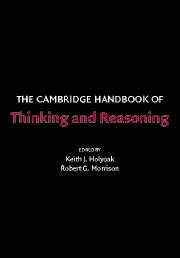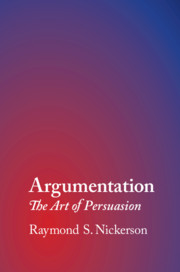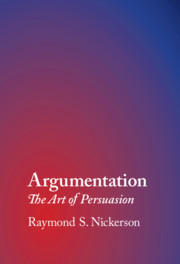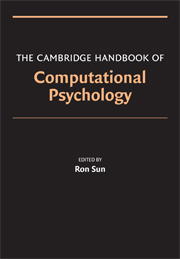The Cambridge Handbook of Thinking and Reasoning
The Cambridge Handbook of Thinking and Reasoning is a comprehensive and authoritative 2005 handbook covering all the core topics of the field of thinking and reasoning. Written by the foremost experts from cognitive psychology, cognitive science, and cognitive neuroscience, individual chapters summarize basic concepts and findings for a major topic, sketch its history, and give a sense of the directions in which research is currently heading. The volume also includes work related to developmental, social and clinical psychology, philosophy, economics, artificial intelligence, linguistics, education, law, and medicine. Scholars and students in all these fields and others will find this to be a valuable collection.
- First handbook to cover all core topics in the field of thinking and reasoning
- Written by foremost experts from cognitive psychology, cognitive science and cognitive neuroscience
- Chapters integrated with cross-citations
Reviews & endorsements
"The editors have done a wonderful job of organizing the chapters within seven topic areas and have even included a list of suggested chapters should the handbook be used as a textbook. The intended readers are experts in the field, academics, and graduate and undergraduate students. Highly recommended."
--Library Journal
"The Cambridge Handbook of Thinking and Reasoning is a well-written and structured book that provides thorough reviews in all the main thinking and reasoning-related areas of research. The reviews not only summarize what is known on a given topic but also describe potential areas for future research. In addition, the chapters are of average length and are very well-referenced. The result is a handbook that can be used in a variety of ways for instruction at the graduate and undergraduate levels and that provides an excellent resource for researchers."
--Contemporary Psychology: APA Review of Books
Product details
April 2005Paperback
9780521531016
874 pages
252 × 180 × 40 mm
1.48kg
82 b/w illus. 2 maps 18 tables
Available
Table of Contents
- Preface
- Part I. The Nature of Human Concepts:
- 1. Thinking and reasoning: a reader's guide Keith J. Holyoak and Robert G. Morrison
- 2. Similarity Robert l. Goldstone and Ji Yun Son
- 3. Concepts and categories: memory, meaning, and metaphysics Douglas L. Medin and Lance J. Rips
- 4. Approaches to modeling human mental representations: what works, what doesn't and why Leonidas A. A. Doumas and John E. Hummel
- Part II. Reasoning:
- 5. The problem of induction Steven A. Sloman and David A. Lagnado
- 6. Analogy Keith J. Holyoak
- 7. Causal learning Marc J. Buehner and Patricia W. Cheng
- 8. Deductive reasoning Jonathan St. B. T. Evans
- 9. Mental models and thought P. N. Johnson-Laird
- 10. Visuospatial reasoning Barbara Tversky
- Part III. Judgment and Decision Making:
- 11. Decision making Robyn A. LeBoeuf and Eldar Shafir
- 12. A model of heuristic judgment Daniel Kahneman and Shane Frederick
- 13. Motivated thinking Daniel C. Molden and E. Tory Higgins
- Part IV. Problem Solving and Complex Learning:
- 14. Problem solving Laura R. Novick and Miriam Bassok
- 15. Creativity Robert J. Sternberg, Todd I. Lubart, James C. Kaufman and Jean E. Pretz
- 16. Complex declarative learning Michelene T. H. Chi and Stellan Ohlsson
- 17. Thinking as a production system Marsha C. Lovett and John R. Anderson
- 18. Implicit cognition and thought Leib Litman and Arthur S. Reber
- Part V. Cognitive and Neural Constraints on Human Thought:
- 19. Thinking in working memory Robert G. Morrison
- 20. Cognitive neuroscience of deductive reasoning Vinod Goel
- 21. Cognitive and neuroscience aspects of thought disorder Peter Bachman and Tyrone D. Cannon
- Part VI. Ontogeny, Phylogeny, Language, and Culture:
- 22. Development of thinking Graeme S. Halford
- 23. Mathematical thinking Randy Gallistel and Rochel Gelman
- 24. Effects of aging on reasoning Timothy A. Salthouse
- 25. Reasoning and thinking in nonhuman primates Josep Call and Michael Tomasello
- 26. Language and thought Lila Gleitman and Anna Papafragou
- 27. Paradigms of cultural thought Patricia M. Greenfield
- Part VII. Thinking in Practice:
- 28. Legal reasoning Phoebe C. Ellsworth
- 29. Scientific thinking and reasoning Kevin Dunbar and Jonathan Fugelsang
- 30. Reasoning in medicine Vimla L. Patel, Jose F. Arocha and Jiajie Zhang
- 31. Intelligence Robert J. Sternberg
- 32. Learning to think: the challenges of teaching thinking Ron Ritchhart and David N. Perkins.






